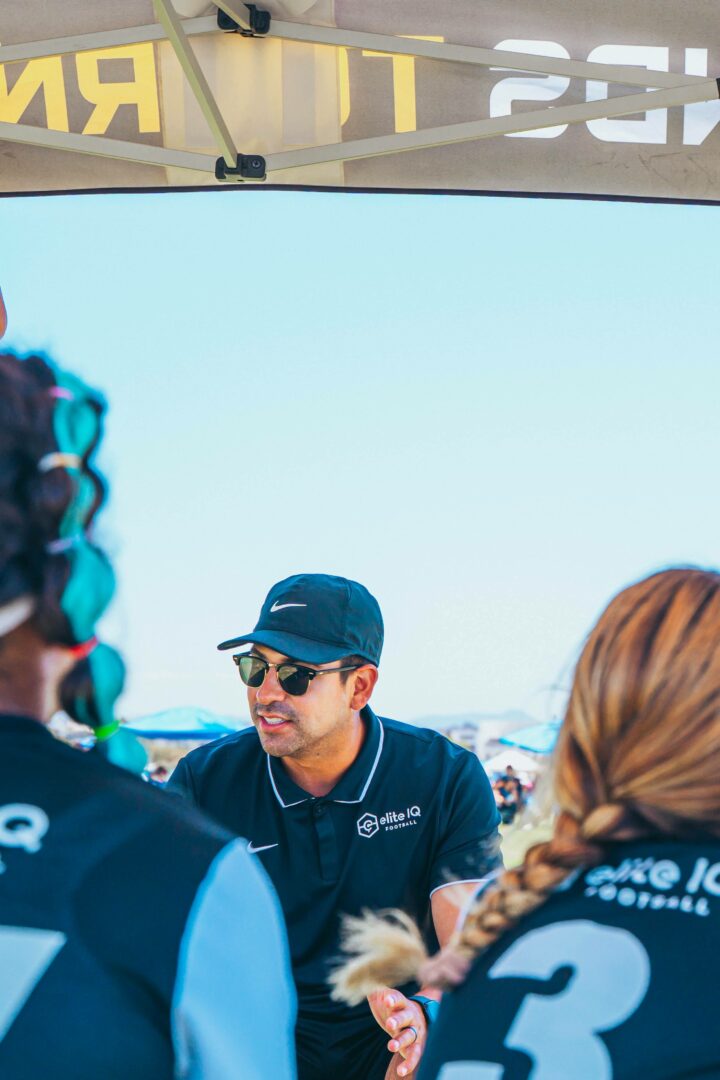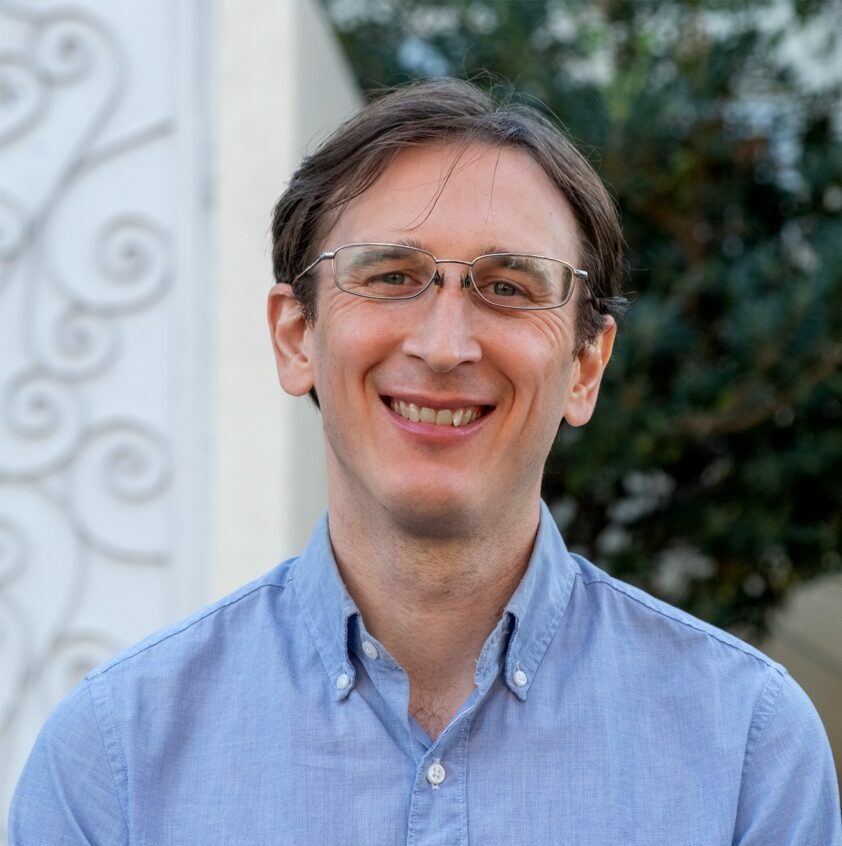We caught up with the brilliant and insightful Arturo Hoyos a few weeks ago and have shared our conversation below.
Arturo, appreciate you making time for us and sharing your wisdom with the community. So many of us go through similar pain points throughout our journeys and so hearing about how others overcame obstacles can be helpful. One of those struggles is keeping creativity alive despite all the stresses, challenges and problems we might be dealing with. How do you keep your creativity alive?
This is a great question because it is something I am very mindful and aware of. In my opinion creativity is what makes coaches, players and programs unique and it is often the factor that helps someone reach the next level. Because of that, I make a real effort to keep my creativity as sharp as can be.
One factor that helps foster my creativity is that I work with every stage of youth development. Through Elite IQ Football I work weekly with U9 to U12 players where my focus is on building the technical foundations that prepare them for the 9v9 and eventually the 11v11 game. At San Diego Surf I am heavily involved with the U11 and U12 Zone One ages. I also work once a week with the ECNL ages which range from U13 to U19. Being around players from so many different ages and levels keeps me creative because each group requires a different approach, a different level of detail, and a different way of delivering information.
I am also surrounded by world class coaches which has a huge impact on my creativity. At SD Surf I collaborate weekly with coaches from Europe and South America who lead our ECNL program. Coaches like Andrés Deza and Juan Porras constantly raise the standard. We design training sessions together, we study methodology, and we bring those sessions to life on the field. Assisting them has pushed me to be creative because I may take a training idea that was built for a U17 team and modify it so it fits a U12 team while still protecting the key principle behind the exercise. That process alone keeps me thinking, adapting, and improving.
I also stay committed to my education by taking coaching courses and continuing to study the game from a methodological and tactical standpoint. This keeps my perspective fresh and helps me grow.
Finally I continue to stay active as a player. I play pickup soccer weekly and I train with UPSL teams during the week. This allows me to stay connected to other players and coaches in the community and I learn a lot simply by playing, observing, and being part of different environments. Living and breathing football every day keeps my creativity alive and being connected to so many people gives me a large library of ideas and resources that I can bring back to my own teams.
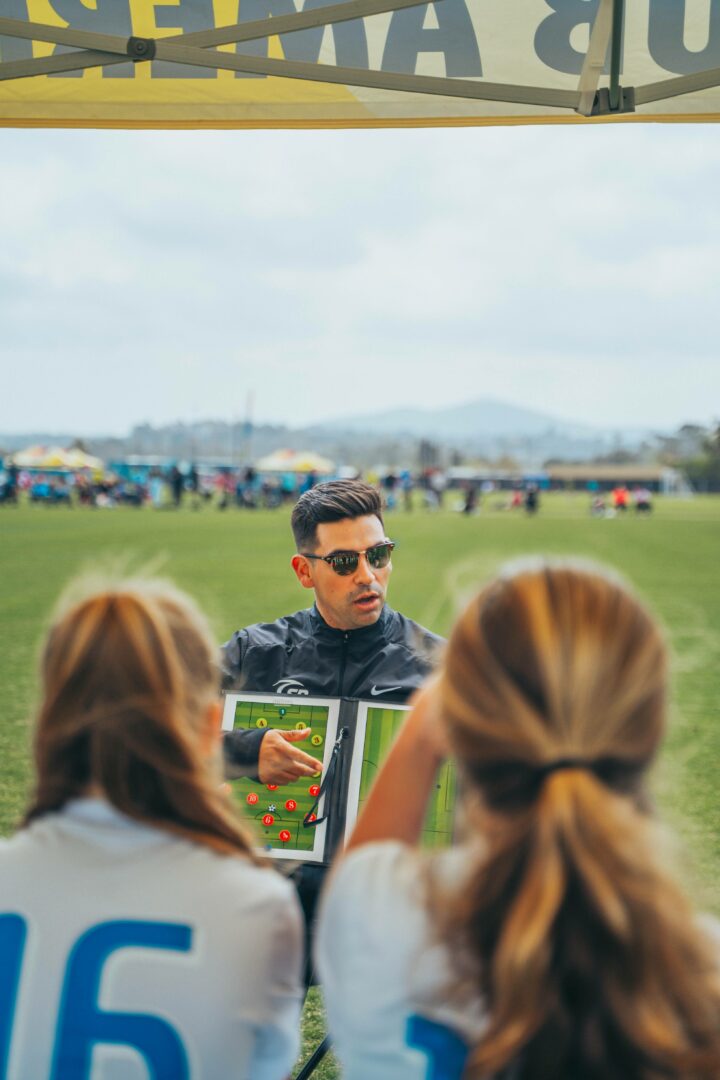
Appreciate the insights and wisdom. Before we dig deeper and ask you about the skills that matter and more, maybe you can tell our readers about yourself?
I am a husband, a dog dad, and someone who truly lives and breathes football. I have felt connected to this sport since I was four years old and that passion has shaped my entire life. I bring the same level of commitment to my all-girl academy, Elite IQ Football, as I do in my full time role as a head coach at San Diego Surf. My purpose in both environments is very clear. I want to help players become the best versions of themselves and I want to guide them toward competing and dominating at the highest level they can reach.
That purpose includes holding players accountable, pushing them to their limits, and having honest conversations with parents when I believe a player is underperforming or when I feel a player is not ready for a certain level. It is not always easy but it is always in the best interest of the player and her long term growth.
What I believe is most exciting and special about my teams and programs is that there is always a clear standard and players who chase that standard often experience incredible growth. I have seen players go from being on a B team, to becoming the captain of that team, and then earning a spot on the A team the following season. I have also seen players put in extra work for years and eventually earn invitations to U.S. Soccer Talent ID Centers & Camps. Watching that evolution is powerful because it shows what happens when a player embraces the environment and commits to the process.
Coaching is emotional and demanding because there are constant highs and lows. There are tough conversations with parents. There are tough moments with players. There are losses and moments where everyone feels the weight of expectations. But there is also joy, growth, and connection. At the end of the day everything is for the love of the sport and for the long term success of the young athletes we guide.
My mission is to take a player from point A to point B and prepare her not only for football but for life. This sport teaches resilience, leadership, discipline, confidence, and how to respond to adversity. If I can help a player master those qualities through football then I know I am doing my job.
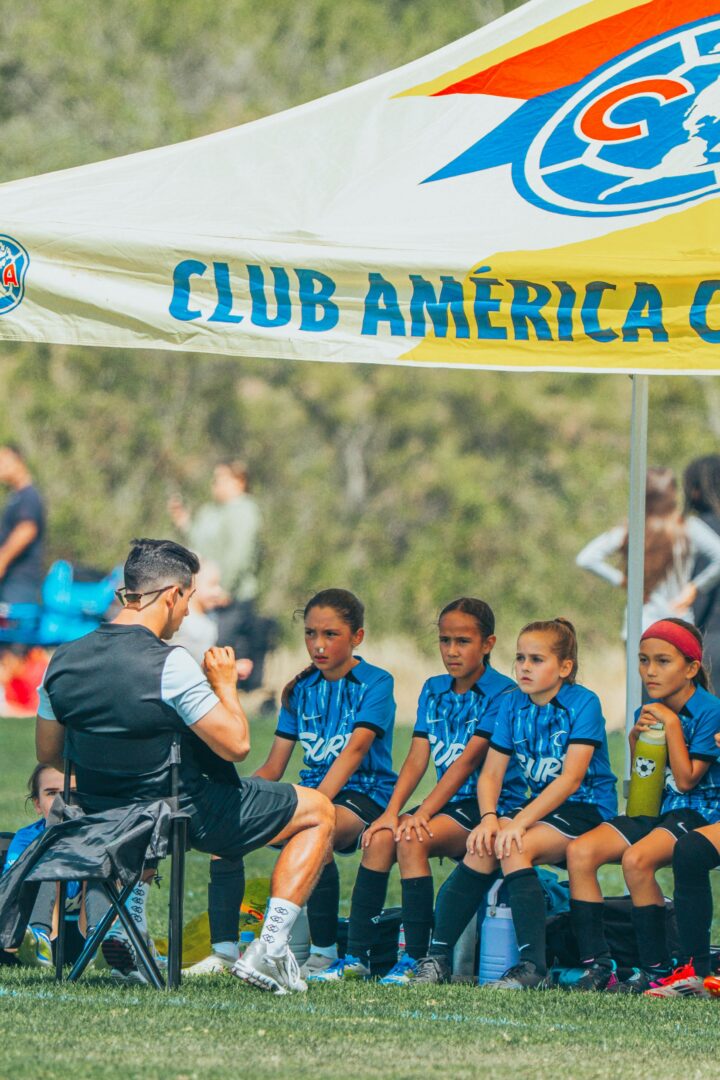
If you had to pick three qualities that are most important to develop, which three would you say matter most?
The three skills that have helped me get to where I am today in my coaching journey are having a vision, committing to honest communication, and having effective organizational skills. Those three things have allowed me to work and lead programs alongside amazing individuals who are striving to reach goals, whether those goals are short term or long term. Having a vision gives you direction. Honest communication builds trust and accountability with players, families, and staff. Good organization keeps everything consistent and professional so players can thrive in the right environment.
For anyone early in their journey, my advice is to stay open minded and make learning from more experienced coaches or mentors a priority. There is so much value in surrounding yourself with people who have walked the path and have years of experience under their belt. I also hope they never fall into the trap of thinking they know it all. The best coaches I know are the most curious and the most willing to keep learning!
Lastly trust your gut. Plenty of people will have opinions about what you should do or how you should do it, but at the end of the day you have to know your purpose and do what you believe is right. Your values and your long term mission should guide every decision. Trust that, stay humble, and stay hungry.
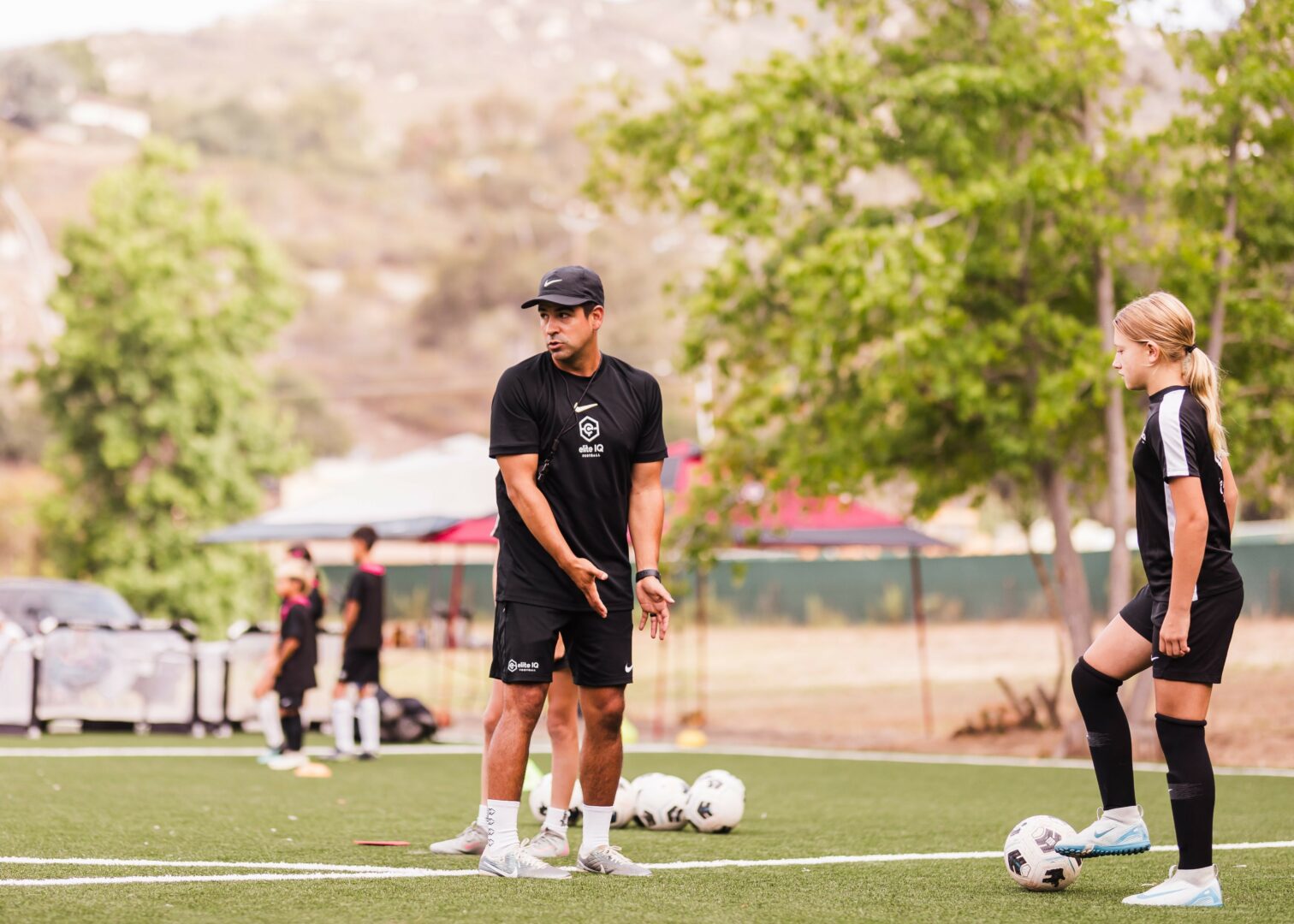
All the wisdom you’ve shared today is sincerely appreciated. Before we go, can you tell us about the main challenge you are currently facing?
This question really hits home because it is something I deal with constantly and I honestly believe it is a challenge every coach and club faces, especially those of us who are truly looking out for the best interests of the player and not just trying to win games or keep parents happy.
The number one challenge is having the complete trust of the family and helping them understand that they also have mine. There is so much noise out there in the youth soccer world. Private trainers, camps, clinics, recruiting pitches, and competing programs sell families on big promises or tell them exactly what they want to hear. What ends up happening is that players and parents are constantly hearing conflicting messages and sometimes being pulled away from a solid environment and into one that simply told them what sounded best.
At a club like San Diego Surf, where we have top coaches and top players, it is natural that other clubs want to pull players away because they know that if someone plays here they are already at a high level. So when things get tough for a player, like getting less playing time or maybe even no minutes at all, some parents react emotionally and start blaming the coach or the club instead of asking the harder questions: Why is my daughter getting fewer minutes? Is she training with the right intensity? Is she performing well or is she struggling? This is where trust becomes everything.
Our number one priority is to create the best possible training environment and to develop strong, well rounded players within that environment. But we know that the real test of trust happens when adversity hits. Some families leave as soon as things get hard for their child. Others see it as part of the growth process and they choose to trust the coaches, trust the program, and support their child through the challenge. Those are the players who usually grow the most both in football and in life.
The reality is that even when we do everything with the player’s best interest in mind, and even with years of proven success, earning and maintaining trust will always be the biggest challenge. We make decisions based on what we believe is best for the player’s long term development. Not based on what parents want to dictate. And that is never going to change. Trust is the foundation of this process and it is something we have to work toward every single day.
Contact Info:
- Website: https://eliteiqfootball.com
- Instagram: @arturoivansd
- Linkedin: https://linkedin.com/in/arturo-hoyos-mpa-aa1157110/
- Youtube: https://youtube.com/@eliteiqfootball
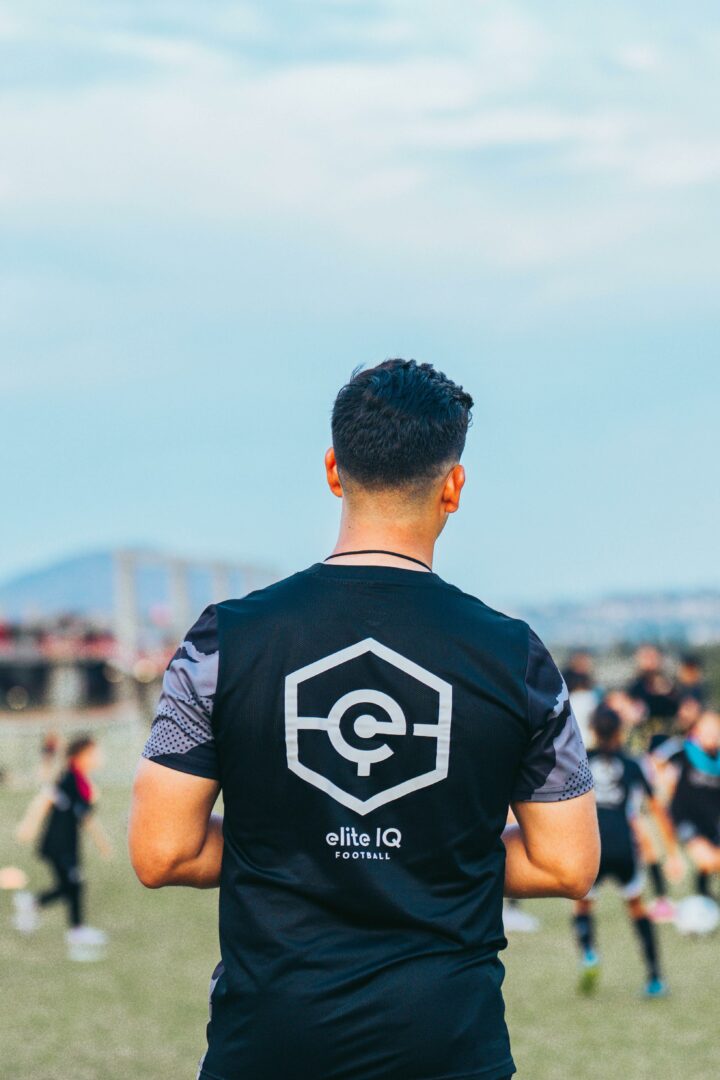
Image Credits
Dodd Studios | Tommy Dodd
so if you or someone you know deserves recognition please let us know here.

